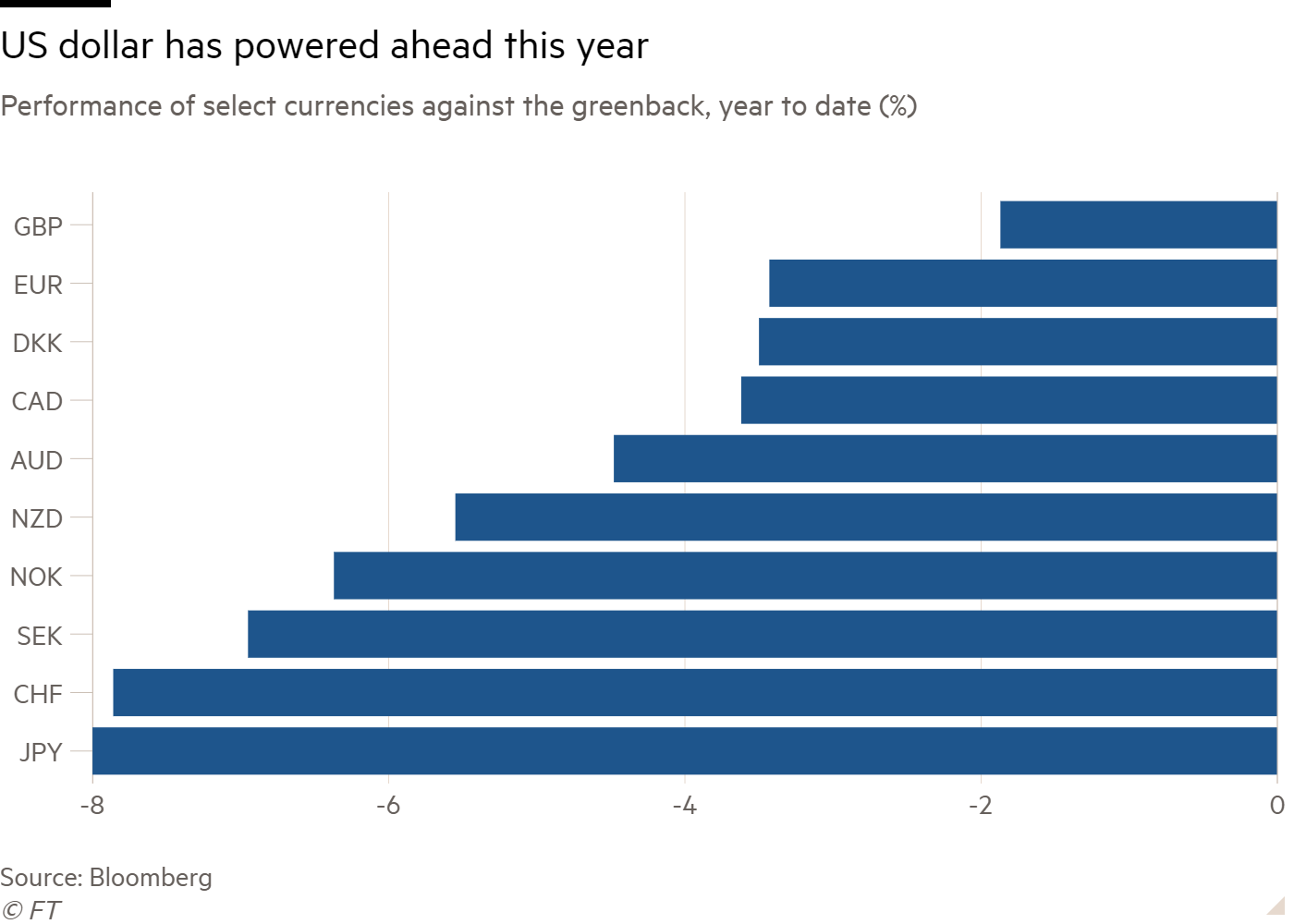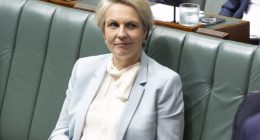Unlock the Editor’s Digest for free
Roula Khalaf, Editor of the FT, selects her favourite stories in this weekly newsletter.
The dollar staged its strongest weekly performance since 2022 after higher than expected US inflation figures caused ripples through world markets.
The US currency strengthened by 1.7 per cent against a basket of six currencies since Monday, its best weekly performance since September 2022, as traders reversed bets on early interest rate cuts by the Federal Reserve.
The euro and sterling fell to their weakest levels against the dollar since November on Friday at $1.0642 and $1.245, respectively, while the yen sank to a 34-year low, before recovering to ¥153.28.
Sterling’s decline also contributed to a 0.9 per cent rise in UK stocks on Friday, as the FTSE 100, whose constituent companies draw most of their revenues in dollars, ended the day’s trading just short of a record close.
“The US is its own special case with very loose fiscal policy and now tight monetary policy, which is a recipe for a stronger dollar,” said Quentin Fitzsimmons, a senior portfolio manager at T Rowe Price. “The buzzword that is going through markets at the moment is divergence.”
This week’s increase in US consumer price inflation — which hit a higher than expected 3.5 per cent for March — has prompted traders to increase bets that the Fed might deliver as few as one rate cut this year.
That compares with expectations of as many as six quarter-point cuts at the start of January.

On Thursday, the European Central Bank signalled it was still on course to deliver interest rate cuts in June. Pressure on the euro increased because of growing expectations that eurozone interest rates will fall ahead of those in the US.
As of Friday afternoon, the single currency was down 1.8 per cent on the week, the biggest weekly decline since September 2022.
“It looks like a happily divergent ECB has sent the euro weaker against the dollar,” said Chris Turner, head of global markets at ING.
The shift in sentiment helped push the spread — or gap — between benchmark 10-year US and German government borrowing costs to 2.17 percentage points, its highest level since 2019.
Speculation also rose that Sweden’s Riksbank could cut interest rates as soon as May after the country reported lower than expected inflation on Friday.
Fears of an impending attack by Iran on Israel, in response to an air strike on the Islamic Republic’s consulate in Syria, may have also contributed to the dollar’s strong recent run, according to analysts.
“Rising tensions between Iran and Israel can spill into even higher oil prices, all to the benefit of the dollar in the near term,” said Francesco Pesole, a currency analyst at ING.
The dollar is considered a haven asset for investors during times of heightened geopolitical uncertainty.
Sustained dollar strength could cause problems for countries looking to cut rates without undermining their currencies and accelerating price rises.
The outlook has been complicated by a surge in oil prices, with Brent crude topping $92 a barrel for the first time since October on Friday amid rising fears of a widening conflict in the Middle East.
“Other central banks clearly don’t want their currencies to weaken materially . . . what it means is effectively you will end up importing more inflation” said James Novotny, a portfolio manager at Jupiter Asset Management.
Markets are betting that the ECB will deliver at least three quarter-point cuts by the end of the year, compared with two reductions for the Bank of England and only one or two for the Fed.
Japan’s currency has suffered most from the rise in US rate expectations, which has pushed the yen to its weakest level since 1990, putting the finance ministry on red alert for a possible intervention.
Masato Kanda, Japan’s vice-minister for finance for international affairs, told reporters on Thursday that authorities would not rule out any measures to address excessive moves in the exchange rate.
Mark Dowding, chief investment officer at RBC BlueBay Asset Management, said the impact of any intervention would be expensive and temporary.
“The yen has been undermined by policy from the [Bank of Japan], which is too accommodative,” he said. “It looks like the yen remains vulnerable just because the policy gap remains achingly wide.”
Read More: World News | Entertainment News | Celeb News
FT










